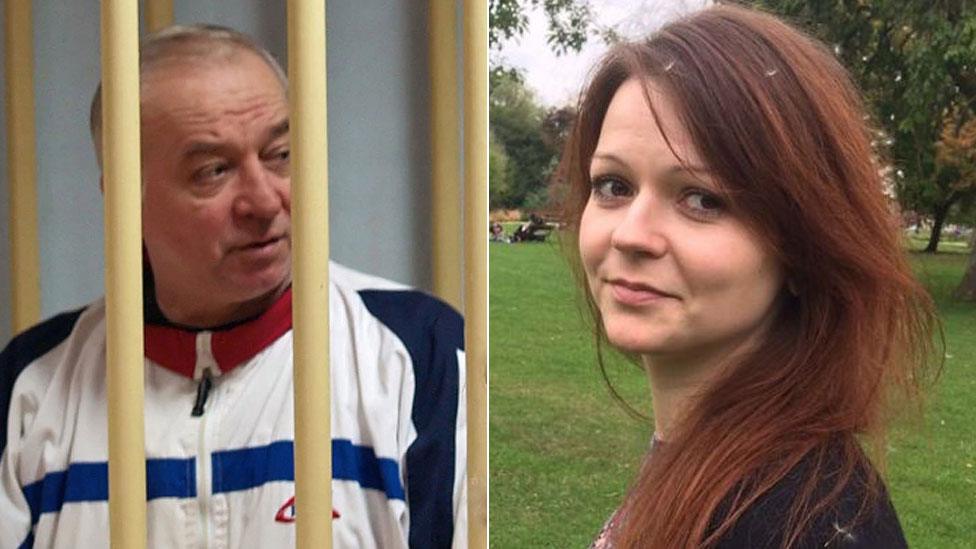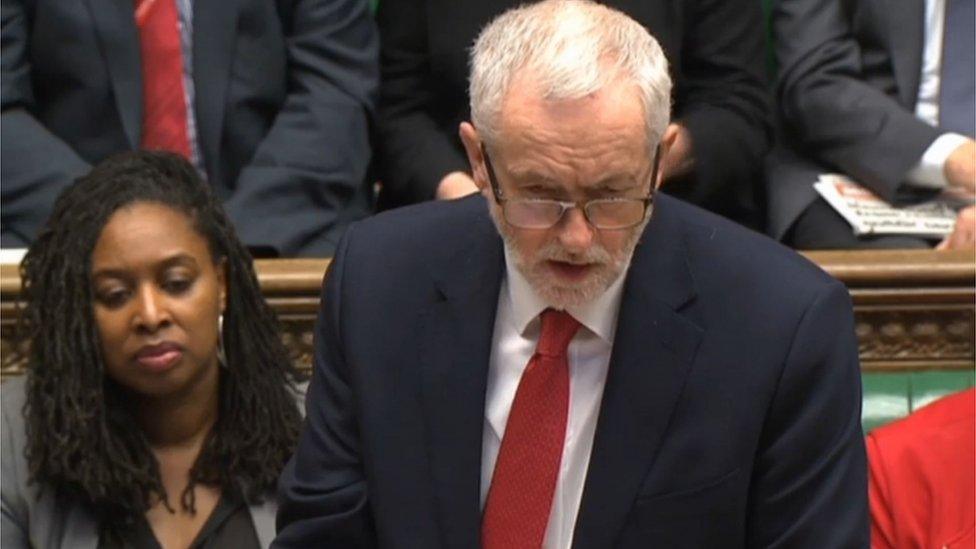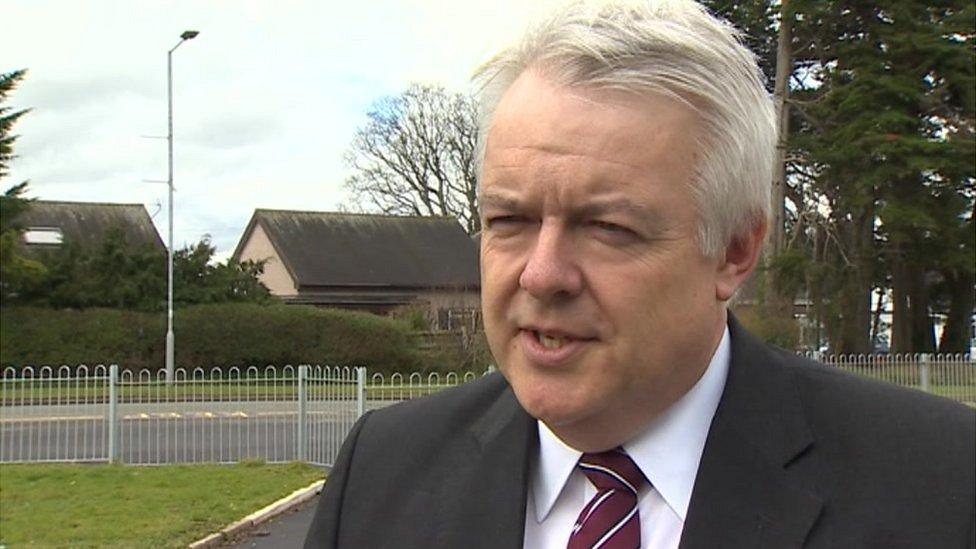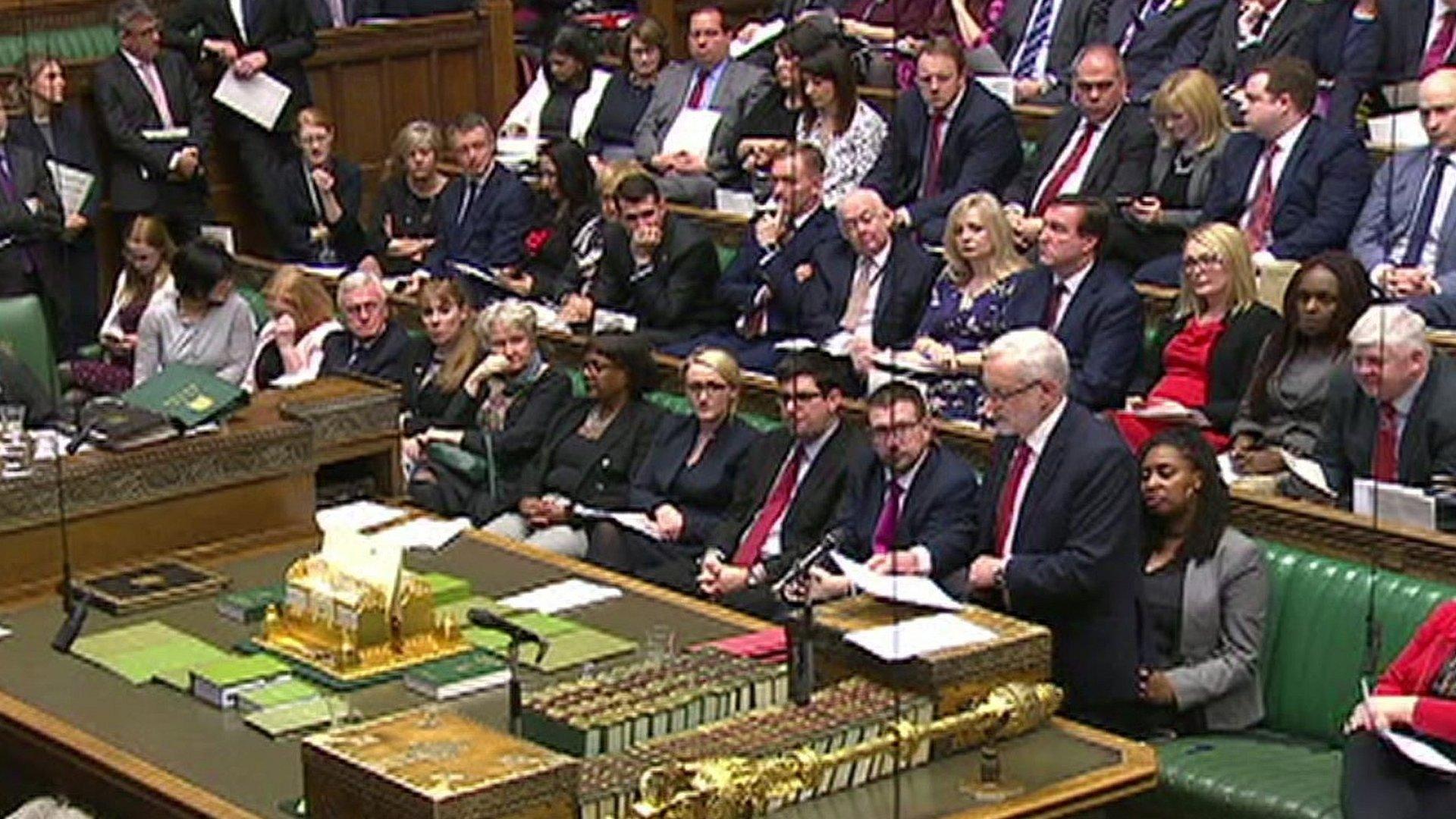Spy row stokes Labour's foreign policy divisions
- Published

Mr Corbyn's foreign policy views are a cause for discomfort among some in his party
Like every intriguing spy story, there is a thrilling sub-plot, with its own twists and turns.
In this real life case, the political sub-plot in the Labour Party has just taken another one.
Yesterday, Jeremy Corbyn, for the second time this week, upset many of his own MPs who were concerned about the tone and attitude that he was taking towards the awful events in Salisbury.
For many of his internal critics, what they see as a hesitance to pin the blame on Russia, hits a raw nerve - their discomfort at Mr Corbyn's long-held beliefs on foreign policy, and concerns that he has allowed himself to be too close, or seen to be too close to some causes, and to be accused of picking the wrong international friends.
And there was particular concern about the comments of Mr Corbyn's official spokesman, a crucial member of his team, who in a briefing to journalists yesterday referred not just to the case of the Skripals but to problems with the intelligence over Weapons of Mass Destruction and Iraq.
The feeling among many Labour MPs was frankly: now is not the time to make those kinds of arguments.
Now is, they would say, the time to stand alongside the government. This is not, many argue, a party political issue, but an issue of national security.
Tone and reaction
Whether there is specific direct proof that there was Russian state involvement in the attack or not, the majority of MPs in the House of Commons agree that there is enough evidence and a pattern of behaviour that make this an appropriate moment to take some diplomatic moves against the Putin regime.
While not opposing those specific actions, Mr Corbyn's tone and reaction to those moves have cracked open Labour's political truce.
His comments have stoked worries about the leader's foreign policy views that have been one of the sources of division in the Labour Party since he became its top pick.
And worries that sometimes give rise to a crude interpretation by the Conservative Party, accusing him of being a "sympathiser" to Russia.

Sergei Skripal, 66, and his daughter Yulia, 33, remain in a "critical but stable" condition
That is, of course, completely disputed by his team. Mr Corbyn has many times criticised Mr Putin's record on human rights.
They balk at any suggestion whatsoever that he is somehow on Russia's "side". And for the Labour leader's tight top team, it is entirely logical that he should be calling at least for a pause, before rushing to judgement in this case on what exactly has happened.
Moreover, for the Labour leader's legions of supporters, it is precisely his willingness to question the political orthodoxy that is part of his appeal.
In that way, it is entirely logical for him to double down in an article for The Guardian, external that he wrote this afternoon, invoking the mistakes over intelligence on Iraq, calling on people not to rush to judgement before arriving at any verdicts when it comes to the Skripal poisoning.
Balancing act
It is quite a balancing act. The tradition in UK politics, rightly or wrongly, is that the two main parties stick together on foreign policy, as much as possible.
But indeed, one of Mr Corbyn's appeals to many of his supporters, is that he rejects that idea of bipartisanship when it comes to our relations around the globe.
He and his close team believe that he was right on issues like Iraq and Afghanistan and that in a moment like this, it is vital to ask questions.
However for some in his own party in Westminster, this time, it's a cause for concern and regret.
Rightly or wrongly, the majority of MPs including Labour front benchers, are satisfied with the government's explanation so far that the intelligence points to Russian involvement. The majority view, is that Russia's response and pattern of behaviour suggests that it is proper to assign the blame.
Yet, in its most simple terms, the Labour leader is not yet willing to point the finger directly.
But many in his party are ready to make that choice. And for the Labour Party this crisis has exposed again the divisions inside.
- Published15 March 2018

- Published15 March 2018

- Published14 March 2018

- Published14 March 2018
